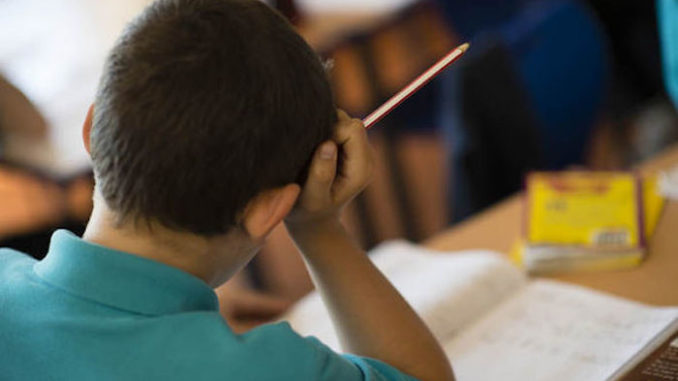
A federal judge has ruled that “access to literacy is not a fundamental right” and schools in Detroit do not need to teach students how to read and write.
U.S. District Judge Stephen J. Murphy III dismissed a civil lawsuit filed on behalf of Detroit students claiming that “literacy is a U.S. constitutional right,” and the Common Core syllabus at their school is not teaching them to read and write to a level that will allow them to function in society as adults.

BYPASS THE CENSORS
Sign up to get unfiltered news delivered straight to your inbox.
You can unsubscribe any time. By subscribing you agree to our Terms of Use
Latest Video
Attorneys for Michigan Gov. Rick Snyder and state education officials disagreed with the students, arguing that no fundamental right to literacy exists for Detroit schoolchildren.
In the suit filed in 2016 through a California public interest law firm, the Detroit students alleged the conditions of their schools are so poor and inadequate they had not received the best education and were denied access to literacy, violating their rights under the due process and equal protection clauses of the 14th Amendment.
Detroit News reports: The state asked U.S. District Judge Stephen J. Murphy III to dismiss the case, saying the U.S. Supreme Court and Michigan courts do recognize the importance of literacy, but reject claims it is a legal right.
On Friday, Murphy stressed that the due process clause doesn’t require Michigan to provide access to minimally adequate education.
“In other words, access to literacy is not a fundamental right — at least not in the positive-right sense,” the judge wrote.
“Accordingly, the State’s alleged failure to provide literacy access to Plaintiffs fails to state an equal protection claim on the basis of burdening a fundamental right.”
Reached Friday night, Mark Rosenbaum, the lead attorney representing the students in the case, declined to comment before speaking with his clients.
Spokespersons for the governor’s office could not be immediately reached.
The suit argued the state has functionally excluded Detroit children from the state’s educational system. It sought class-action status and several guarantees of equal access to literacy, screening, intervention, a statewide accountability system and other measures.
Attorneys representing the students have said the filing highlights shocking problems in some Detroit schools and is the first of its kind in the nation that seeks to secure students’ legal right to literacy under the 14th Amendment.
In his ruling Friday, Murphy supported the significance of literacy in securing jobs and future plans but wrote “those points do not necessarily make access to literacy a fundamental right.”
The U.S. Constitution does not explicitly guarantee the right to education. And citing previous rulings, Murphy wrote :”The Court is left to conclude that the Supreme Court has neither confirmed nor denied that access to literacy is a fundamental right. The Court must therefore cautiously take up the task.”
Attorneys for the plaintiffs also have cited widespread problems in the Detroit Public Schools Community district, including classrooms with vermin, teacher shortages, a lack of books and functioning computers and lab equipment. Meanwhile, Detroit has historically scored the lowest in the state and nation when its students were measured on standardized tests.
However, Murphy ruled that was not enough, either.
“Plaintiffs must do more than point to the present conditions as … evidence that the State — and Defendants specifically — have acted irrationally,” Murphy wrote.
Murphy’s ruling dismisses the case with prejudice, meaning it is now closed, according to the filing.
The case had attracted attention from national education groups. It also coincided with changes for the Detroit district, Michigan’s largest, which had spent a decade under state oversight.
Since Nikolai Vitti was named its superintendent in 2017, he has sought significant changes citywide, including boosting teacher pay, removing outdated K-8 curriculum in reading and math, restoring art or music to all schools, as well as developing a three-year plan to prepare kids for either college or technical careers.
However, challenges such as teacher vacancies and deplorable building conditions persist. According to a report the district released last week, the cost to address widespread poor building conditions would cost $500 million.


